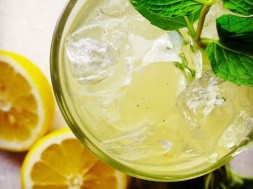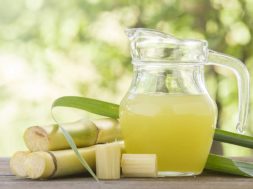Migraine is basically, a partial headache, probably caused by constriction of blood-vessels, and hence reduced level of oxygen, resulting in neuro-dysfunction. It can be triggered by a variety of reasons. Stress and Depression are known to trigger migraine. Other possible causes could be sensitivity to environmental factors like smoke, light, etc. Gastro-intestinal disorders are said to be another cause, and in some cases, a symptom, prior to an attack. Excessive alcohol, aspartame, or caffeine could also trigger migraine. Migraine affects about 12% of the United States population.
The Science of Probiotics has been defined as “Administering micro-organisms for improvement of health.” Increase in population of bacteria, S. Faecalis in the gut, results in over-production of tyramine, which is an agent known to trigger migraines. S. Faecalis is a catalyst in the bio conversion process of tyrosine to tyramine. The population of S.Faecalis needs to be kept at an optimum level. Nature has provided for some “friendly” micro-organisms to create this balance in the gut. However, when this balance is disturbed, the population of S. Faecalis goes up, thus triggering migraines, due to over production of Tyramine. Under the given circumstances, intake of the “friendly micro-organisms” does the balancing trick, the natural way, thereby healing in a probiotic way. Yogurt is said to be an anti-dote for migraines, since it contains a fauna of “friendly” bacteria capable of balancing out the rampant S. Faecalis.
Among herbs, Feverfew has been effectively used as a herbal remedy for migraine, in various parts of the world and dates back to about 2000 years. The botanical name for feverfew is €Tanacetum Partheium,€ which is a member of the Compositae [daisy] family. Native to the Balkans, it can also be found in Australia, China, Indian Himalayas, Japan & Americas. The word “feverfew” comes from the Latin word €febrifugia,€ meaning “fever reducer.”
Chemistry- Feverfew contains Sesquiterpene lactones, Flavonoid glycosides, Sesquiterpenes and monoterpenes. The most active component of feverfew is parthenolide. It is said to be inhibiting the release of serotonin and prostaglandins in blood vessels, both of which are precursors for the onset of migraines. The active ingredients in feverfew include parthenolide and tanetin. Commercially, the Capsules of feverfew generally contain at least 205 mcg. parthenolide.
Other Herbal remedies recommended for alleviating migraines are- chamomile, dandelion root, ginkgo biloba, Gotu kola etc. Garlic, being a detoxifier, is said to be effective too. Ginger is another crude drug said to alleviate migraine conditions.





